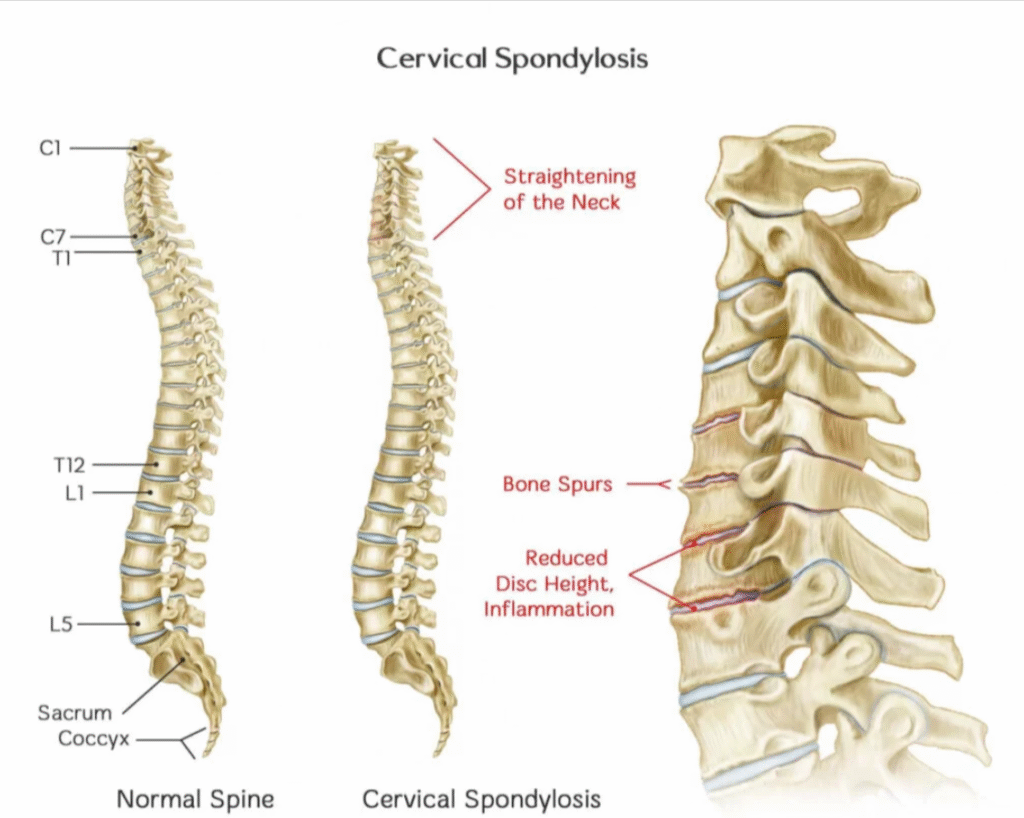Cervical Spondylitis
Cervical spondylitis (also known as cervical spondylosis) is a common, age-related condition that affects the cervical spine—the vertebrae, discs, and joints in your neck. It is a type of degenerative arthritis of the neck.
Causes
Cervical spondylitis typically results from wear and tear of the bones and discs in the neck over time. Key contributing factors include:
• Age-related degeneration (most common in people over 40)
• Disc dehydration and shrinkage
• Bone spurs (osteophytes)
• Herniated discs
• Stiff ligaments
• Repetitive neck movements or injuries
• Poor posture (especially with prolonged screen use)
Symptoms
Symptoms can range from mild to severe, and some people may have no symptoms at all. Common signs include:
• Neck pain and stiffness (especially in the morning or after long periods of inactivity)
• Headaches (often starting at the back of the head)
• Pain radiating to the shoulders, arms, or hands
• Numbness or tingling in the arms or hands
• Muscle weakness
• Loss of balance or coordination (in advanced cases, if the spinal cord is compressed)
Diagnosis
• Physical exam
• X-rays (to detect bone changes)
• MRI or CT scans (to assess nerve or spinal cord compression)
• Electromyography (EMG) if nerve damage is suspected
Treatment Options
Conservative treatments:
• Rest and lifestyle changes
• Physical therapy (neck strengthening, posture correction)
• Pain relief: NSAIDs (like ibuprofen), muscle relaxants
• Heat/cold therapy
Advanced treatments (if symptoms persist or worsen):
• Steroid injections (for inflammation and pain)
• Surgery (in rare cases with nerve/spinal cord compression)
🧘♂️ Home & Preventive Care
• Regular neck stretches and exercises
• Maintain good posture, especially at work
• Use supportive pillows while sleeping
• Take breaks from long periods of screen use
• Avoid carrying heavy bags on one shoulder
🩺 When to See a Doctor
Seek medical attention if you experience:
• Persistent or worsening neck pain
• Numbness or weakness in arms/hands
• Trouble walking or with coordination
• Loss of bladder or bowel control (rare, but urgent)
Would you like a list of specific neck exercises, dietary tips for bone health, or a sample daily routine for managing cervical spondylitis?

